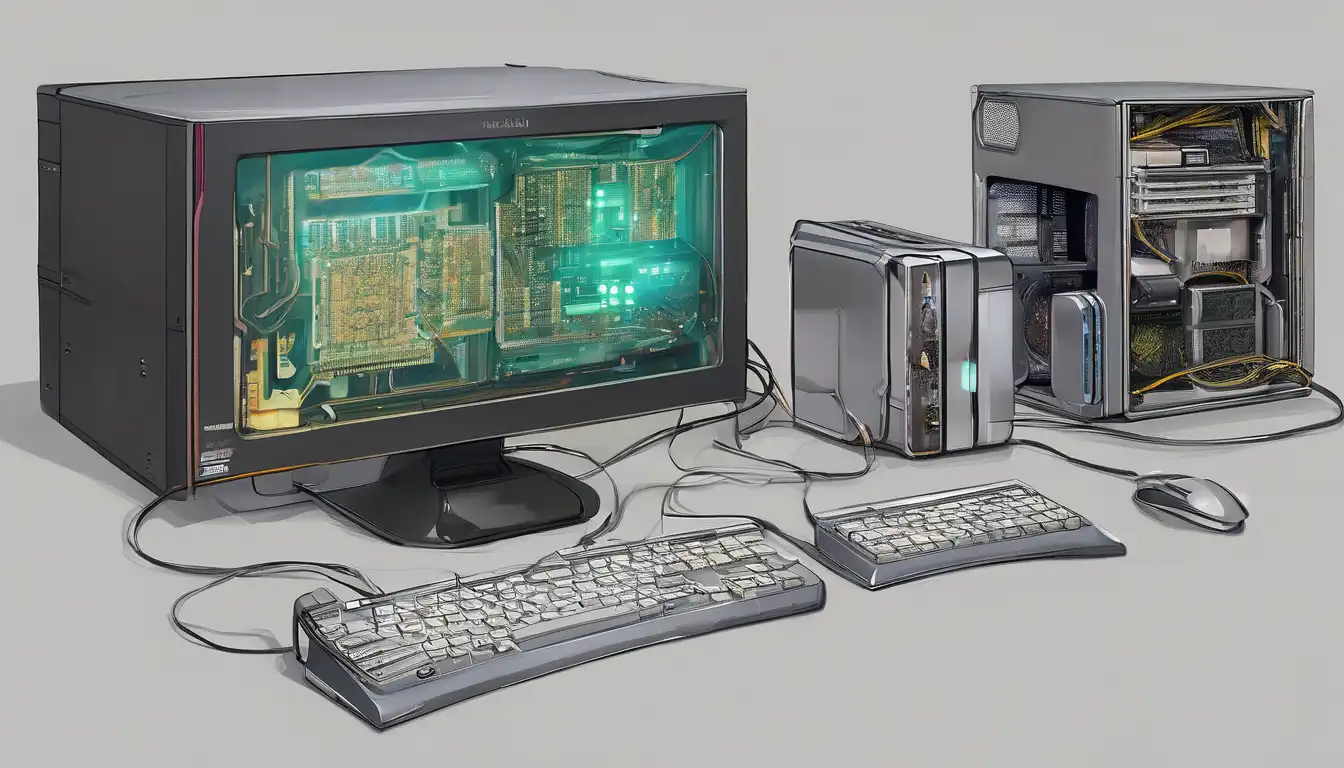Revolutionary Advances in Computer Hardware Technology
The landscape of computer hardware technology is undergoing unprecedented transformation, with innovations emerging at an accelerated pace. From quantum computing breakthroughs to AI-optimized processors, the hardware sector is pushing boundaries that were once considered science fiction. These advancements are not only enhancing computing power but also redefining how we interact with technology in our daily lives.
Next-Generation Processor Architectures
The processor market has witnessed remarkable evolution with the introduction of 3D stacking technology and chiplet designs. Major manufacturers like Intel, AMD, and Apple are leveraging advanced manufacturing processes down to 3nm and beyond. These processors feature:
- Enhanced multi-core performance with efficiency cores
- Integrated AI acceleration units
- Advanced thermal management systems
- Improved power efficiency for mobile devices
The shift toward heterogeneous computing architectures allows for specialized processing units working in harmony, optimizing performance for specific tasks while maintaining energy efficiency.
Memory Technology Breakthroughs
Memory technology has seen significant improvements with DDR5 becoming mainstream and LPDDR5X offering exceptional performance for mobile devices. The latest innovations include:
- Higher bandwidth capabilities exceeding 8000 MT/s
- Reduced power consumption by up to 20%
- Enhanced error correction mechanisms
- Scalable architectures for future upgrades
These advancements ensure that memory subsystems no longer bottleneck system performance, enabling smoother multitasking and faster data processing across all computing platforms.
Storage Solutions Evolution
Storage technology continues to evolve with PCIe 5.0 SSDs delivering unprecedented read/write speeds exceeding 14,000 MB/s. The latest storage innovations feature:
- QLC and PLC NAND flash with higher densities
- Advanced wear-leveling algorithms
- Hardware-based encryption acceleration
- Thermal throttling prevention mechanisms
These developments are crucial for data-intensive applications like video editing, gaming, and enterprise storage solutions, where speed and reliability are paramount.
Graphics Processing Units (GPUs)
Modern GPUs have transcended their traditional role in gaming to become essential components for AI, machine learning, and scientific computing. The latest GPU innovations include:
- Ray tracing acceleration hardware
- Tensor cores for AI workloads
- Advanced cooling solutions
- Multi-GPU synchronization technologies
Manufacturers are focusing on creating more efficient architectures that deliver higher performance per watt, making high-end graphics capabilities accessible to broader markets.
Quantum Computing Hardware
Quantum computing represents the frontier of hardware innovation, with companies developing superconducting qubits, trapped ions, and photonic quantum processors. Key developments include:
- Increased qubit stability and coherence times
- Error correction mechanisms
- Scalable quantum processor designs
- Hybrid classical-quantum computing systems
While still in early stages, these advancements promise to revolutionize fields like cryptography, drug discovery, and complex system simulation.
Cooling and Thermal Management
As hardware components become more powerful, thermal management has become increasingly critical. Recent innovations include:
- Liquid cooling solutions for consumer devices
- Phase-change materials for heat dissipation
- Advanced fan designs with magnetic levitation
- Intelligent thermal management algorithms
These cooling technologies ensure optimal performance while maintaining component longevity and system stability under heavy workloads.
Connectivity and I/O Advancements
The latest connectivity standards are transforming how devices communicate and transfer data. Key developments include:
- USB4 with 40Gbps transfer speeds
- Wi-Fi 7 with multi-gigabit wireless performance
- Thunderbolt 4 for universal connectivity
- PCIe 6.0 for future expansion capabilities
These advancements enable seamless integration between devices and support the growing demand for high-bandwidth applications.
Energy Efficiency and Sustainability
Modern hardware innovations increasingly prioritize energy efficiency and environmental sustainability. Manufacturers are implementing:
- Low-power states and dynamic frequency scaling
- Recyclable materials in component manufacturing
- Energy-efficient manufacturing processes
- Extended product lifecycles through modular designs
These initiatives not only reduce environmental impact but also lower operational costs for consumers and enterprises alike.
Future Outlook and Emerging Trends
The future of computer hardware technology points toward even more integrated and intelligent systems. Emerging trends include:
- Neuromorphic computing architectures
- Photonic computing systems
- 3D integrated circuits
- Biologically-inspired computing models
These innovations will continue to push the boundaries of what's possible, enabling new applications in artificial intelligence, virtual reality, and scientific research.
The rapid pace of innovation in computer hardware technology demonstrates the industry's commitment to meeting evolving computational demands. As these technologies mature and become more accessible, they will undoubtedly transform how we work, create, and interact with digital systems. Staying informed about these developments is crucial for businesses and individuals looking to leverage the full potential of modern computing capabilities.
